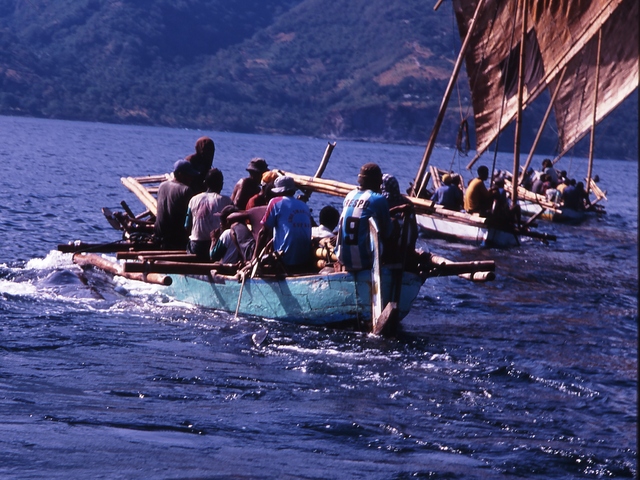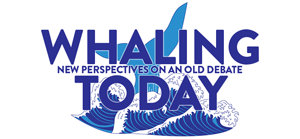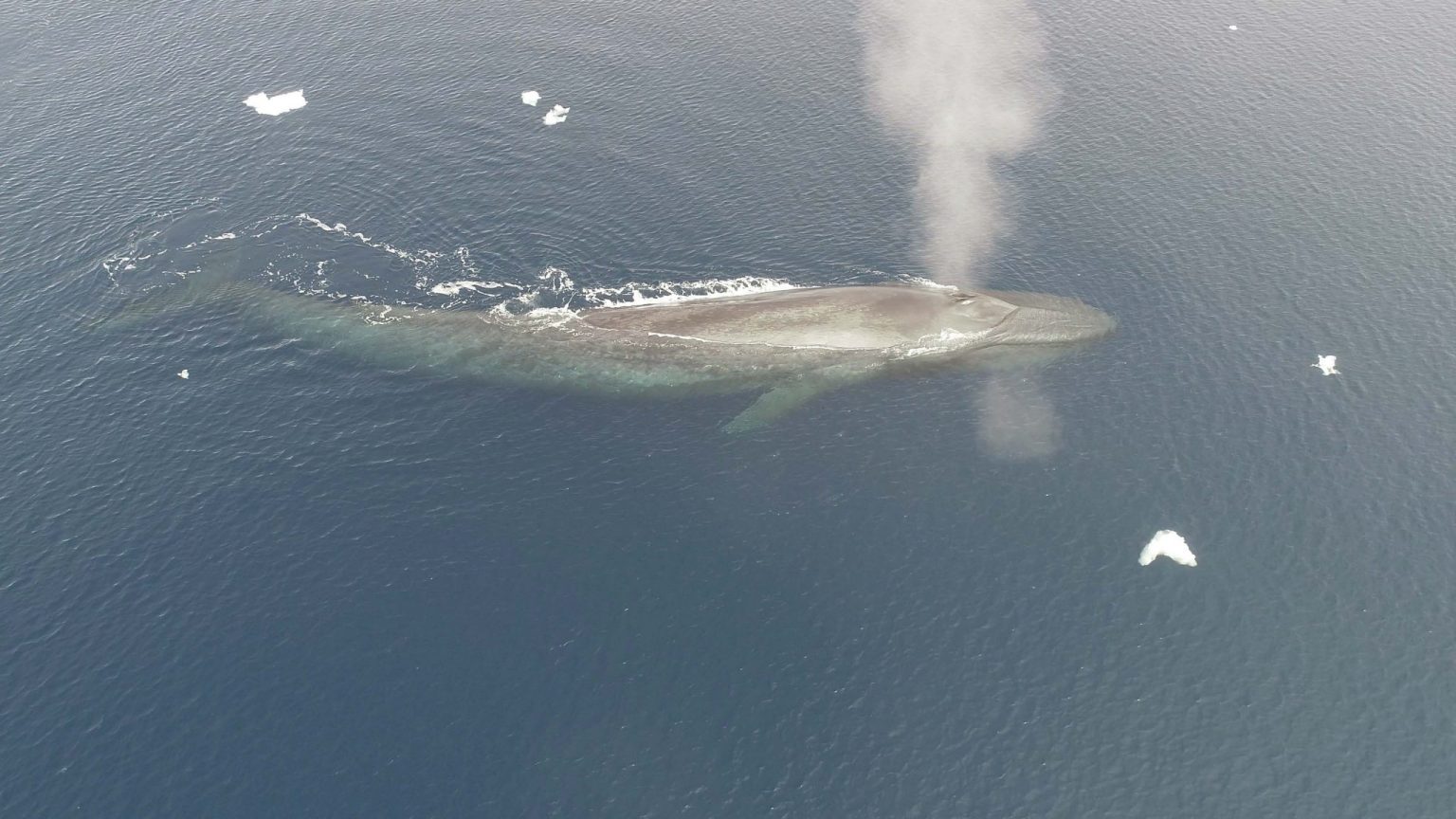Part 1 of 2
On June 30, 2019, Japan withdrew from the International Whaling Commission (IWC) and resumed commercial whaling in its territorial waters and exclusive economic zone. Around that time, there were active international reactions and press coverage of Japan’s whaling. But now, almost three years later, the international debate over whaling is extremely tepid and the world appears to have lost interest in the whaling issue.
Interest has shifted to the global COVID-19 pandemic that began in late 2019 and climate change issues. The shift may be partly due to the fact that various international meetings, including the IWC, have been postponed or made virtual because of the pandemic.
However, the tension between the principle of sustainable use of living resources and environmental protection, and the underlying differences in views of nature and the world among different cultures symbolized by the whaling issue, have not disappeared. Rather they have become even more apparent in recent years over the issues of climate change and the conservation of biodiversity.
In this article, the author would like to reexamine the deeper roots of the whaling issue and offer his personal views on the relationship between sustainable use and environmental protection, as well as the relationship between humans and nature.

Is Whaling an Environmental Issue?
The whaling issue is often seen as a “symbol of environmental protection” and the negative image that whaling is destructive to the environment and marine ecosystems is propagated. Is whaling really environmentally destructive when only abundant species of whales are utilized within their rate of reproduction, with cautiously calculated conservative catch limits taking into account scientific uncertainties?
Opposition to whaling is often based on a fundamental difference in views regarding whales and whaling, such as that whales are special animals (intelligent, (regarded as) endangered, at the top of the ecosystem, large, beautiful, rich in emotion, etc.) and therefore should not be killed. There are fundamentally different perspectives as well on whether whaling with harpoons is inherently cruel.
From the standpoint of viewing whales as a living marine resource this approach (i) is unscientific, emotional, and an imposition of particular values and ethics (the reason why the words such as “environmental imperialism” and “environmental colonialism” are often heard as criticisms of anti-whaling ideology), (ii) undermines the principles of sustainable development recognized by the UN and many other international organizations, and (iii) is a denial of diversity in the relationship between humans and animals.
Such arguments are not limited to conflicts over whales but have also been discussed in relation to elephants and other species at the conferences of the parties to the Washington Convention (CITES) and the Convention on Biological Diversity (CBD). The whaling issue can be seen as “a symbol of support for the sustainable use principle” or “the front line in the defense of the sustainable use principle.”
Whaling as an Environmental Issue
There are many countries in the IWC that do not conduct whaling but support the sustainable use of whales. Their interest in and sense of urgency toward the IWC is mainly due to the defense of this sustainable use principle and the maintenance of diversity in the use of living resources (human-animal relations).
They are also concerned with the disruption of the balance of the marine ecosystem (impact on fisheries) as a result of the over-protection of whales as a special and untouchable species.
In this sense, even though Japan’s commercial whaling has now resumed as a result of Japan’s withdrawal from the IWC, the international whaling issue has not been solved and the various issues related to the sustainable use principle have not disappeared.
The relationship between whaling and the sustainable use principle must also be discussed when considering the future of whaling in Japan. This is because the philosophy/idea, management measures, and policies under which future whaling will be conducted may influence the nature of the sustainable use principles recognized by the international community in various declarations and resolutions, including the SDGs. The symbolism of the whaling issue is that great.
The whaling issue is treated as an environmental issue, and from the anti-whaling standpoint, whaling is considered to be environmentally destructive. In that sense the issue is regarded as a symbol of environmental problems, and many of the representatives of anti whaling countries attending the IWC are affiliated with government departments in charge of environmental issues, such as the Ministry of Environment.

Wildlife, Coexisting with Humankind
As a side note, when Mr Shunichi Suzuki, a member of the House of Representatives in the Japanese Diet (now Minister of Finance) who also served as chairman of the LDP Pro-Whaling Caucus, was appointed Minister of Environment in the first Koizumi Cabinet in 2002, anti-whaling people reacted with disbelief and astonishment, some regarding the appointment as a kind of bad joke. The image of whaling as an environmental catastrophe is so strong. In their view, the image of whaling as a synonym to the extinction of whales, too, is that strong.
At his inaugural press conference, a reporter asked, “Isn’t it strange that a minister who is supposed to protect wildlife supports whaling?” Mr Suzuki stated, “Whether it is whales, elephants, sea turtles, seals, or any other living resources, rare species should be thoroughly protected, while those that are abundant should be managed appropriately and used sustainably to coexist with humankind.” (Eugene Lapointe, translated by Shigeko Misaki, 2005).
The question then becomes whether whaling that does not adversely affect the resource under strict catch limits is environmentally destructive. Why shouldn’t it be possible to take whales of abundant species within their reproductive range and with sufficient margin of safety from the standpoints of science, regulatory compliance, and monitoring and enforcement?
The Different Issue of Animal Rights
The claim that whales are special animals and that no one should be allowed to take any one of them should not be in the realm of environmental issues. Such an argument is considered an animal rights claim that animals have the same rights as humans, which is separate from environmental issues.
It should be noted, however, that animal rights view treats all animals equally, while many anti-whaling people take the position that they do not approve of whale hunting while allowing the use of other animals. Therefore, they are not pure adherents of animal rights.
The idea that certain animals are considered special is based on the concept of charismatic animals, or iconic animals. Under this concept, there are arbitrary exceptions in the application of the principle of sustainable use, and even if there is no consensus on the exceptions, the majority ー or those with more power ー will force their way of thinking on others.
Whaling is a case in point, and more worrisome, it is not the only case. Therefore, the whaling issue is important in considering the relationship between humans and animals, and its future development may affect a variety of issues, including food security issues.

Charismatic Animals – The Relationship Between Humans and Animals
The concept of a charismatic animal must be explained here.
Generally, charismatic animals are large vertebrates that are known to everyone, including children, and that evoke emotions such as beauty, strength, and cuteness. Typical charismatic animals are the elephant, tiger, wolf, shark, and whale.
Charismatic animals are also associated with the image of being endangered (and therefore must be protected), even though they are not actually endangered, as is the case with many species of whales.
This image of endangerment is further confounded and reinforced by the fact that some stocks and species that are considered charismatic animals are in fact endangered. For example, the Antarctic blue whale was over hunted in the past and its population has yet to recover, while minke whales in the Antarctic Ocean have no history of overhunting and are abundant.
In conservation ecology, species that play an important role in an ecosystem are referred to as keystone species, flagship species, etc. Through their conservation, the protection and conservation of the ecosystem as a whole is promoted, although concerns have been expressed that these concepts are sometimes intentionally confused with the concept of charismatic animals (see the references at the end of the article).
Concern has also been expressed that when comparing those truly endangered and in need of protection but without charisma, to those that are not endangered but have charisma, research funding, conservation funding, and other measures tend to be attracted to those with charisma.

Environmental Imperialism, Environmental Colonialism
There is not always consensus on which animals are charismatic. For example, according to Bowen-Jones & Entwistle, British schoolchildren love big cats, primates, and elephants, while Tanzanian children fear and abhor dangerous elephants and big cats, preferring zebras, giraffes, and buffaloes for their attractiveness, financial gain and meat quality [Bowen-Jones E, 2002].
This difference naturally arises between children who know lions and elephants through television screens, in cages at the zoo, and in Disney movies, and those who know them in their own habitat as fierce beasts that sometimes attack humans.
In this situation, demands for their absolute protection from developed countries that see lions and elephants as charismatic animals to developing countries, are an imposition of values and the arrogance of great power. The whaling issue, which is rooted in the fundamental difference in values concerning the whale, also fits into this structure.
The impact of the charismatic animal concept goes beyond mere differences in animal views, especially if it calls for arbitrary exceptions to the principles of sustainable use and development, which are widely accepted and required to be implemented by the international community. This is another reason why in the whaling issue, criticisms of environmental imperialism and environmental colonialism are directed toward anti-whaling countries from the side of countries that support sustainable use .

The Important Issue is Sustainability
Although somewhat at odds with the above point that the whaling issue is not an environmental issue, this criticism is understandable in the sense that forcing values and policies onto others ignores differences in culture, history, and living conditions.
The pro-sustainable use developing countries participating in the IWC have been able to identify the smells of environmental imperialism and environmental colonialism in the whaling issue through their own experiences in other international issues and challenges. And they are very wary of the proliferation of anti-whaling arguments, which will adversely affect other international debates on sustainable use and development, and trying to prevent it.
This point of whaling as a symbol of sustainable use is the other policy issue that the whaling issue really represents. It is often understood that the policy issue of whaling is just resumption and continuation of whaling through the lifting of the moratorium on commercial whaling. This is a specific and important policy issue for whaling nations such as Japan and Norway, but it is not the only whaling issue. Rather, for many of the sustainable use supporting countries participating in the International Whaling Commission, the important policy issue is the defense and promotion of the general principle of sustainable use.
Part 2: The Relationship between Humans and Nature as Seen from the Whaling Issue
This article is based on the report by Joji Morishita, PhD, Tokyo University of Marine Science and Technology, in Japanese:”Reconsidering the Background of Whaling Issues -Sustainable Use and Environmental Protection, World Views on Humans and Nature” (p9-14, Institute of Whale Research Newsletter No. 493, March 2022, ISSN 1340-9409)
References used by the author for this article include: Eugene LaPointe, Embracing the Earth’s Biological Resources: Perspectives on Wildlife Conservation (Shinpusha, 2005, in Japanese); Joji Morishita, Withdrawal from IWC and International Negotiations (Seizando Shoten, 2019, in Japanese); Martin D. Robards, Randall R. Reeves, “The global extent and character of marine mammal consumption by humans:1970-2009” and “Biological Conservation,” 144 (2011) 2770-2786; Frederic Ducarme, Gloria M. Luque, Franck Courchamp., “What are “charismatic species” for conservation biologists?” 2012)
Author: Joji Morishita, PhD
Professor, Tokyo University of Marine Science and Technology
RELATED:
- History of Japanese Whaling: The Birth of Traditional Whaling in Japan
- History of Japanese Whaling: Transition to a Modern Whaling Nation
This article is published in cooperation with the Institute of Cetacean Research in Japan. Let us hear your thoughts in our comments section.

